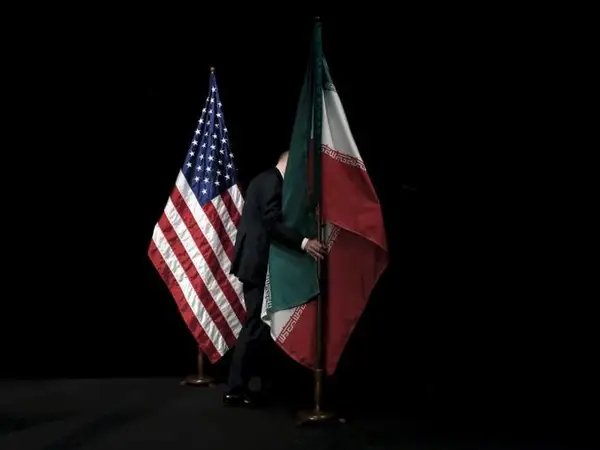Iran has accumulated 25kg of uranium enriched to 60 percent and 210kg enriched to 20 percent, the spokesman of its nuclear agency told a Tehran rally Thursday.
Behruz Kamalvandi said that only nuclear weapons states are capable of this level of enrichment.
The last report from the International Atomic Energy Agency (IAEA), on September 7, put stocks at 10kg enriched to 60 percent and 84 kg enriched to 20 percent. The sharp increase may strengthen concern in the United States and Europe over advances in Iran’s nuclear program with talks on reviving Iran’s 2015 nuclear deal with world powers set to resume in Vienna November 29.
In Tehran, Iran Diplomacy, a website linked to the foreign ministry, published an interview with Mohsen Jalilvand in which the international relations analyst suggested that both Iran and the US were, in terms of an Iranian proverb, “hitting the table hard” in the belief this would strengthen their position in the negotiations.
Jalilvand mentioned US B1-B bombers flying recently over the Straits of Hormuz as well as Iran’s accusations that it thwarted in late October a US attempt to steal a shipment of Iranian oil, a charge Washington has denied.
‘Weapons grade’
Iran has since 2019 been breaching nuclear limits set by the 2015 nuclear deal – the JCPOA, Joint Comprehensive Plan of Action – in a response to former US president Donald Trump leaving the agreement in 2018 and imposing ‘maximum pressure’ sanctions on Iran. The JCPOA restricts enrichment to 3.67 percent, well short of the 90 precent considered ‘weapons grade.’
Iran accelerated the program in early 2021 following the assassination of scientist Mohsen Fakhrizadeh and picked up further the pace after attacks on Iranian nuclear sites widely attributed to Israel.
In a report in September the Institute for Science and International Security suggestedIran could have enough material for a crude atomic weapon within a month, although it would need “more time to build a nuclear explosive devise or even longer to build a deliverable nuclear weapon.” The outgoing head of Israeli military intelligence, Major-General Tamir Hayman, said in September that Iran was two years away from the capacity to create a weapon.
But both the US and the European signatories of the JCPOA – France, Germany and the United Kingdom – have expressed concern that the expanded nuclear program is giving Tehran knowledge and experience that undermines the calculations underpinning the JCPOA. Iran, in turn, has said it will respect JCPOA limits once the US lifts ‘maximum pressure’ sanctions levied by Trump and continued by President Joe Biden.
‘Dialogue without delay’
France said Thursday it was holding to the possibility of acting against Iran at the November 18-19 meeting of the 35-nation board of the IAEA, whose head Rafael Mariano Grossi has called for an urgent meeting in Tehran to discuss agency access to the Karaj site, which makes centrifuges, used to enrich uranium,
European signatories of the 2015 deal apparently backed away in September from raising a resolution at the board criticising Iran after Tehran agreed with Grossi to extend a temporary arrangement giving the agency access beyond the minimum required under the Nuclear Non-Proliferation Treaty. Grossi has since argued this included access to Karaj, which Iran is restricting on grounds of a security investigation following a drone attack in June.
“Iran must resume dialogue and cooperation with the agency without delay to make progress on outstanding issues,” France’s foreign ministry spokeswoman Anne-Claire Legendre told reporters in a daily briefing. “Together with our partners, we remain very attentive to ensuring that Iran respects its commitments, and we remain in close consultation on the response to be provided on this.”
